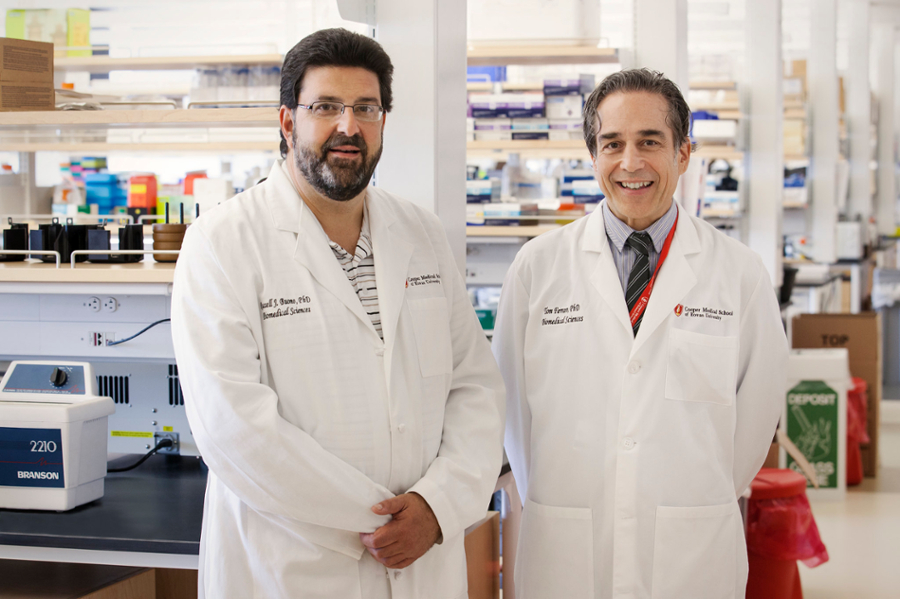CMSRU professors contribute to groundbreaking epilepsy genetics research
CMSRU professors contribute to groundbreaking epilepsy genetics research

Cooper Medical School of Rowan University (CMSRU) Professors of Biomedical Sciences, Dr. Russell Buono and Dr. Thomas Ferraro, recently co-authored a major study published in Nature Neuroscience. The study, part of the Epi25 Collaborative, is titled “Exome sequencing of 20,979 individuals with epilepsy reveals shared and distinct ultra-rare genetic risk across disorder subtypes” and offers new insights into the genetic factors behind epilepsy.
The goal of the Epi25 collaborative is to identify genetic contributions to epilepsy by performing whole exome sequencing on DNA from 25,000 patients who have common forms of the disease. Drs. Buono and Ferraro, along with collaborators at The Children’s Hospital of Philadelphia, Thomas Jefferson University Hospital and Nationwide Children’s Hospital of Cincinnati, contributed over 3000 patient samples to this effort to date. The most recent wave of results from the collaborative effort document numerous rare variations across the genome and identify rare variations in many genes as risk or causative factors in common forms of epilepsy, particularly genes for sodium ion channels, GABA receptors and the GATOR1 complex proteins. These findings replicate and extend data from prior studies that discovered mutations in the same types of genes are involved in rare forms of epilepsy like developmental epileptic encephalopathies (DEE) and common forms of epilepsy such as non-acquired focal epilepsies (NAFE).
The new study also revealed unique findings, such as rare variations in the phosphodiesterase genes PDE2A and PDE10A that are associated with DDE and NAFE, respectively. Variations in genes related to histone acetylation and epigenetic regulation were also discovered to be associated with these epilepsy types including KANSL1, KANSL2 and PFH20. In addition, rare variations in the ryanodine receptor gene RYR2 were found to be associated with genetic generalized epilepsy (GGE), a finding that converges with data from genome wide association studies showing that common variations in RYR2 are also associated with GGE.
Overall, results of this new study expand understanding of the patterns of genetic mutations and variations that contribute to the complex inheritance of common forms of human epilepsy.